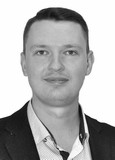Application of individual programs for students’ motor modes self-organization
Ключевые слова:
motor activity, individual programs, self-organization of motor modes, students, Talegram-bot.Аннотация
Objective of the study was to evaluate the effectiveness of the application of individual programs for the self-organization of students' motor modes using digital technologies.
Methods and structure of the study. The study was carried out at the Belgorod State Technological University named after V.G. Shukhov 980 students aged 18-20 took part in the pedagogical experiment. Throughout the experiment, for all students in the CG and the EG, motor activity was regulated in their free time at the level of the daily minimum rate of motor activity of 10,000 steps per day. For this, a bot channel was used in the Telegram application. For the EG group, the channel-bot Telegram calculated and offered options for the missing physical activity after filling out the morning questionnaire, which indicated the planned physical activity for the day.
Results and conclusions. According to the data obtained, significant differences in Student's t-test between the CG and the EG were registered in all physical fitness tests. The greatest increase in indicators was observed in the EG in speed and speed-strength tests. The conclusion is made about the effectiveness of the application of individual programs for the self-organization of motor modes of students who used the Telegram-bot with programmed activity.
Библиографические ссылки
Veselkina T.E. Samostoyatelnyy kontrol i korrektsiya dvigatelnoy aktivnosti studentov s ispolzovaniyem informatsionnoy tekhnologii [Independent control and correction of motor activity of students using information technology]. PhD diss. St. Petersburg, 2014. 161 p.
Golovina E.A., Gurenko Yu.V., Tomashevskaya O.B., Romanov S.S. Otsenka fizicheskogo sostoyaniya studentov pervogo kursa [Assessment of the physical condition of first-year students]. Izvestiya TulGU. Fizicheskaya kultura. Sport, 2020. Issue. 9. pp. 14-20.
Kondakov V.L., Sheplyakov A.S. Analiz mobilnykh prilozheniy dlya povysheniya urovnya dvigatelnoy aktivnosti studencheskoy molodezhi [Analysis of mobile applications to increase the level of physical activity of students]. Vestnik tambovskogo universiteta. Ceriya: gumanitarnyye nauki. TSU, 2022. Vol. 27. No. 2. pp. 443-450.
Listkova M.L. Programmno-metodicheskoye obespecheniye samostoyatelnykh zanyatiy po fizicheskoy kulture studentov v vuze [Software and methodological support of independent physical culture lessons for students at the university]. PhD diss. Krasnoyarsk, 2019. 186 p.
Usatov A.N., Kondakov V.L., Kopeikina E.N., Balysheva N.V. Vzaimosvyaz energozatrat i ikh vospolneniya v zavisimosti ot dvigatelnoy aktivnosti i mesta prozhivaniya studentov [The relationship of energy costs and their replenishment, depending on the physical activity and place of residence of students]. Teoriya i praktika fizicheskoy kultury. 2020. No. 7. pp. 30-32.
Sheplyakov A.S., Kondakov V.L., Kopeikina E.N. Sovremennyye podkhody k probleme regulirovaniya dvigatelnoy aktivnosti studentov [Modern approaches to the problem of regulation of motor activity of students]. Izvestiya TulGU. Fizicheskaya kultura. Sport, 2021. Issue. 3. pp. 67-74. DOI: 10.24412/2305-8404-2021-3-67-74.

Дополнительные файлы
Опубликован
Как цитировать
Выпуск
Раздел
Лицензия

Это произведение доступно по лицензии Creative Commons «Attribution» («Атрибуция») 4.0 Всемирная.
